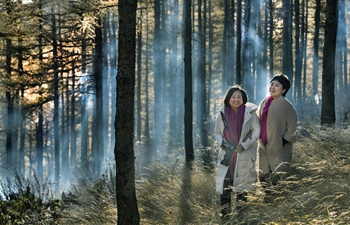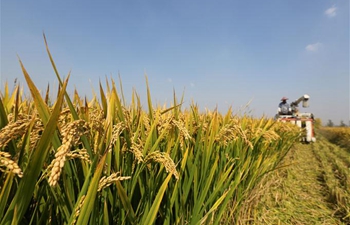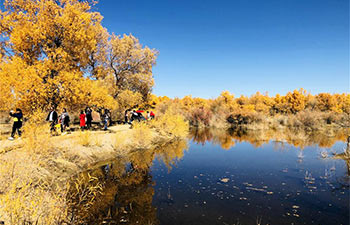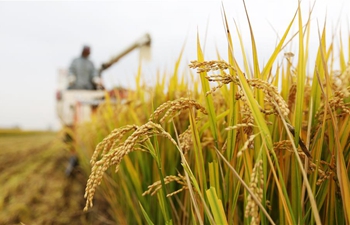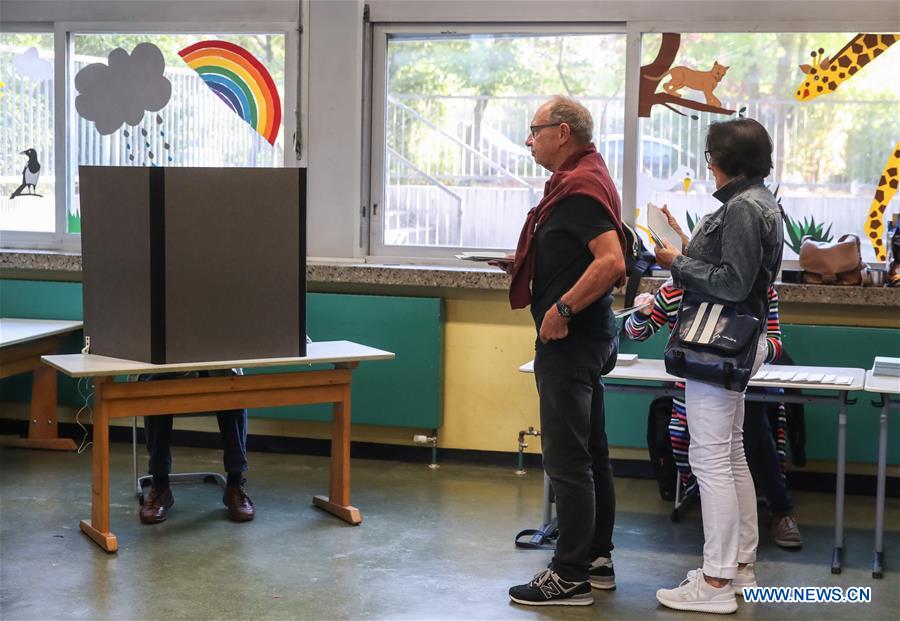
Two voters wait to fill in their ballots for local parliament election at a polling station in Nuernberg, southern Germany, on Oct. 14, 2018. Germany's southern state of Bavaria started voting on Sunday to shuffle the local parliament Landtag. (Xinhua/Shan Yuqi)
MUNICH, Oct. 14 (Xinhua) -- Germany's southern state of Bavaria started voting on Sunday to shuffle the local parliament Landtag.
About 9.5 million eligible voters are called in 91 voting districts to elect their representatives in the new state parliament, among them 600,000 are first-time voters, according to local statistics office.
Preliminary results will be disclosed at 6 p.m. local time (1600 GMT).
The Christian Social Union (CSU), which has long governed the economic-strong state after the post-war period, is polled to suffer a serious setback losing its majority.
The latest survey showed the conservative party will get 34 percent of the votes, a historic low and a sharp decline from the 47.7 percent it got in 2013.
CSU's losses will likely give way to the ecologist, pro-immigration Greens, with a supporting rate of 19 percent, and the right-wing populist Alternative for Germany (AfD), which is forecast to win roughly 10 percent of the votes, according to the poll made by Infratest Dimap.
The regional party Free Voters is projected to get 10 percent of the votes.
If the polls were accurate, it would be fairly difficult to form a stable coalition government in Bavaria, since CSU has greatly shifted its policies to the right while ruling out cooperation with AfD.
Local media said the probable combination of CSU and left-leaning Greens in the government will lead to a more tricky situation.
The CSU has taken a hard line on migration issues, after German Chancellor Angela Merkel's open-door policy in 2015.
The German government this year nearly collapsed when the CSU, at the federal level, insisted on a stricter plan to turn away refugees at the border after clashing with its sister party, Merkel's Christian Democratic Union.





